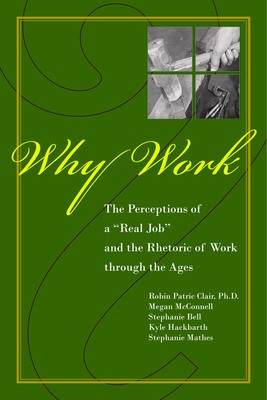
- We will send in 10–14 business days.
- Author: Robin Patric Clair
- Publisher: Purdue University Press
- Year: 2008
- Pages: 196
- ISBN-10: 1557534543
- ISBN-13: 9781557534545
- Format: 16.6 x 22.4 x 1.3 cm, minkšti viršeliai
- Language: English
- SAVE -10% with code: EXTRA
Reviews
Description
Why Work explores the contemporary cultural construction of work, beginning with the expression, "A Real Job." This volume examines "work" in the writings of Aristotle, Plato, Confucius, St. Benedict, Adam Smith, Karl Marx, Booker T. Washington, W.E.B. Du Bois, Mother Jones, Emma Goldman, Emile Durkheim, Max Weber, Frederick Winslow Taylor, and Mary Parker Follett to answer the question, "Can the concept of work be divorced from the thinker's past?" A final chapter re-examines the core issue in light of the vary concept of "work" and ask one more time "why work?" This work is a result of an Honors seminar at Purdue University.EXTRA 10 % discount with code: EXTRA
The promotion ends in 21d.02:16:15
The discount code is valid when purchasing from 10 €. Discounts do not stack.
- Author: Robin Patric Clair
- Publisher: Purdue University Press
- Year: 2008
- Pages: 196
- ISBN-10: 1557534543
- ISBN-13: 9781557534545
- Format: 16.6 x 22.4 x 1.3 cm, minkšti viršeliai
- Language: English English


Reviews